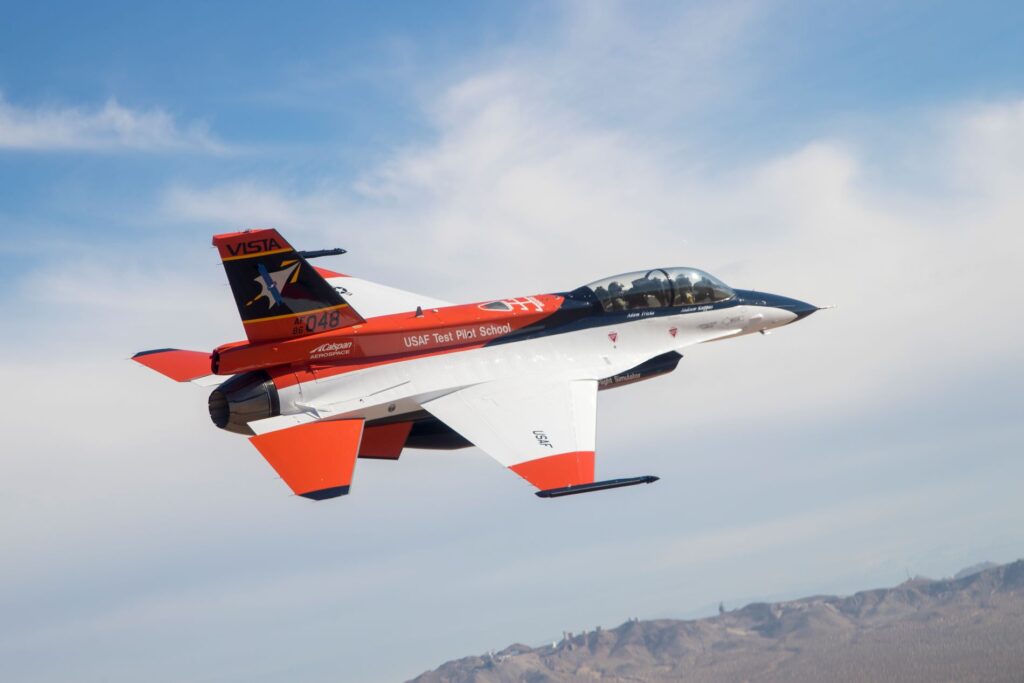The X-62A VISTA (Variable Stability In-Flight Simulator Test Aircraft), a modified F-16 fighter jet flown by an artificial intelligence (AI), has completed a series of 12 flights at Edwards United States Air Force (USAF) base in California, US.
The jet is a collaborative effort between the US Department of Defense (DOD), the USAF Test Center, the Air Force Research Laboratory and Defense Advanced Research Projects Agency (DARPA).
The test program included both within-visual-range (WVR) dogfighting and beyond-visual range (BVR) fights with a simulated opponent, a press release issued by Edwards Air Force Base explained.
The BVR fights were handled by the AACO (Autonomous Air Combat Operations) agent, an AI designed by the Air Force Research Laboratory, while DARPA’s Air Combat Evolution (ACE) agent handled basic flight maneuvers during a dogfight. According to the release, the jet had to be landed to switch between the algorithms.
It is one of the first tests to be flown by an actual physical fighter jet piloted by an AI.
X-62A testing began in December 2022 and was designed to pave the way for the development of Collaborative Combat Aircraft (CCA): highly capable AI-piloted drones, also known as loyal wingmen.
“The X-62A VISTA team has proven with this test campaign that they are capable of complex AI test missions that accelerate the development and testing of autonomy capabilities for the DOD,” Malcolm Cotting, the director of Research at the U.S. Air Force Test Pilot School, is quoted as saying in the press release.
A jet with a history
The X-62 aircraft is a highly modified General Dynamics F-16D, which the USAF has used for testing a range of advanced technology since the early 1990s.
First flown in 1992 as NF-16D, it was modified with multi-axis thrust-vectoring engine nozzle, which gave it extreme maneuverability characteristics.
By the early 2000s the same jet was testing Direct Voice Input technology and virtual head-up display, features that were later implemented on the Lockheed Martin F-35 Lightning II fifth-generation fighter jet.
In 2021, it was renamed the X-62 and became part of the USAF’s Skyborg program, which unites a range of agencies and companies with the goal of developing airframes and software for upcoming loyal wingman drones.
Robotic pilots
Initially Skyborg pitted 13 companies against each other in a contest to develop hardware and software solutions for autonomous combat drones. From these, three airframes were selected in January 2021: the Kratos XQ-58 Valkyrie, the General Atomics MQ-20 Avenger and the Boeing Airpower Teaming System, which later became the MQ-28 Ghost Bat.
Since then, the drones have been performing a range of tests for the USAF.
According to the USAF, the X-62 can mimic flight characteristics of both a production F-16 fighter jet and the MQ-20 Avenger drone, indicating that the latter could also be intended to eventually perform air-to-air missions.

